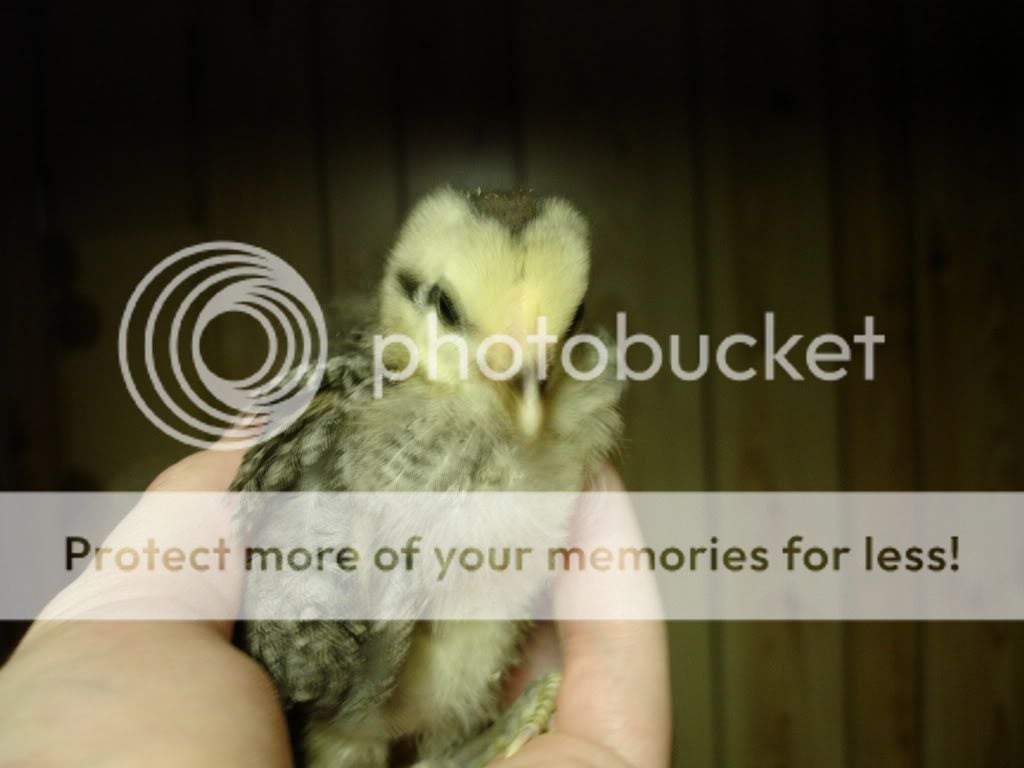I am so drained from this ordeal with my MM chicks. I know that there are people out there who have chicks that have shown signs of AE but are hanging on and/or recovering.
I want to hear from everyone about some of the "good fight" that's going on. I have 10 (out of the 18 to survive shiping and the first 48 hours) affected birds, all in varying degrees. BUT, they are hangin on! They are fighting this with all their might! I am PROUD of them...and I won't cull them unless I KNOW that it is the best thing to do for THEM!
My weakest, and first to show symptoms, is Chick Jr. He has gotten worse in the past few days, but continues to fight. He is my hero. I try and make sure he gets water and vitamins, and HE makes sure he eats...and boy can he eat!
Here is a picture of him. He is such a trooper.
I want to hear about all the little chicks out there that are fighting this!

I want to hear from everyone about some of the "good fight" that's going on. I have 10 (out of the 18 to survive shiping and the first 48 hours) affected birds, all in varying degrees. BUT, they are hangin on! They are fighting this with all their might! I am PROUD of them...and I won't cull them unless I KNOW that it is the best thing to do for THEM!
My weakest, and first to show symptoms, is Chick Jr. He has gotten worse in the past few days, but continues to fight. He is my hero. I try and make sure he gets water and vitamins, and HE makes sure he eats...and boy can he eat!
Here is a picture of him. He is such a trooper.
I want to hear about all the little chicks out there that are fighting this!




